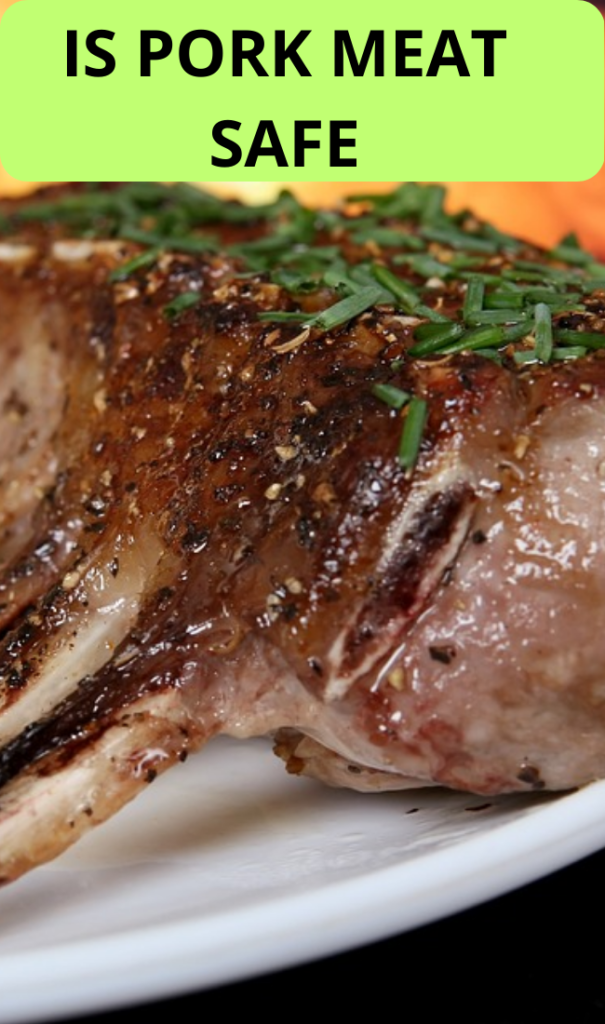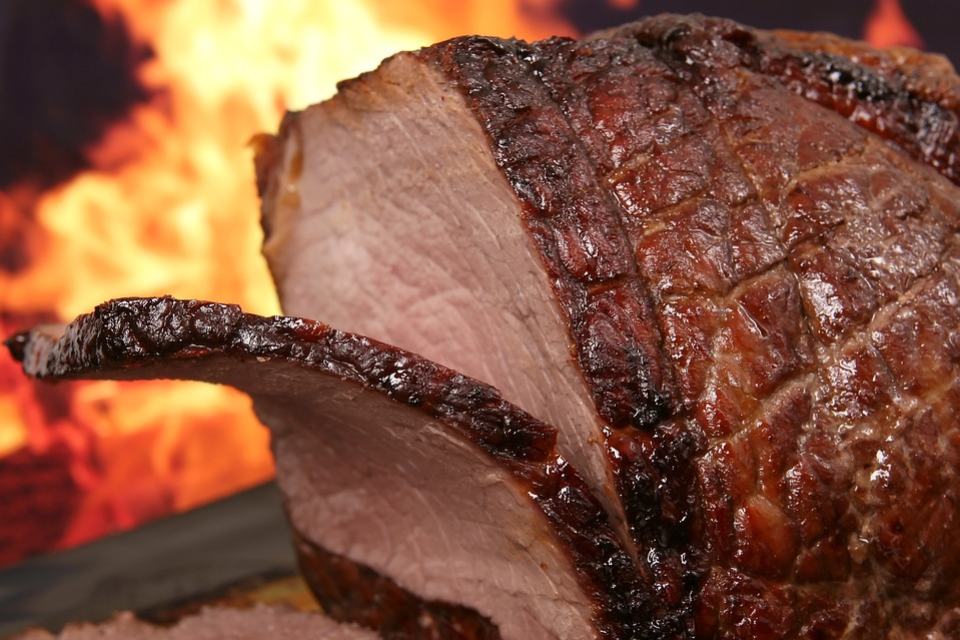IS PORK MEAT SAFE – WHY SOME CULTURES DON’T EAT IT?
IS PORK MEAT SAFE: Pork is a popular meat consumed by many cultures around the world. It is used in a variety of dishes and is known for its versatility and delicious taste. However, there are several cultures that do not eat pork for various reasons, including religious, cultural, and health-related beliefs. In this article, we will explore the cultural significance of pork and the cultures that do not eat it.
Cultural Significance of Pork
Pork has been a significant part of human diets for thousands of years. It is a staple in many cuisines and is enjoyed in various forms, such as bacon, ham, sausage, and more. In some cultures, pork has a particular significance beyond just being a source of protein.
For example, in Chinese culture, pork is considered a symbol of wealth and abundance. It is often served during festivals and celebrations, and many Chinese dishes feature pork as the main ingredient. Similarly, in the Philippines, lechon, a roasted pig, is a centerpiece of many special occasions.
In other cultures, pork has a more religious significance. In Judaism, pork is considered unclean and forbidden to eat under kosher dietary laws. In Islam, pork is also considered haram or forbidden, and Muslims are prohibited from eating it.
- Some Recommended Products:
- <<<48 Inch Gas Range 6 Burners Cooktop Oven
- <<<Professional Series Built-In All Refrigerator
- <<<Mini Refrigerator, 2-Door
Cultures That Do Not Eat Pork
Judaism: As mentioned earlier, pork is considered unclean and forbidden to eat under kosher dietary laws. Kosher laws require that all meat must come from animals that have split hooves and chew their cud, which excludes pigs. The ban on pork in Judaism can be traced back to the Book of Leviticus, which prohibits the consumption of certain animals, including pigs.
Islam: Pork is also forbidden in Islam, as it is considered haram or impure. Muslims are prohibited from eating pork or any products derived from it, such as bacon or sausage. The prohibition on pork in Islam is mentioned in the Quran, and it is believed that pork is harmful to human health and can cause various diseases.
Seventh-day Adventists: The Seventh-day Adventist Church encourages a vegetarian diet, but even among those who eat meat, pork is generally avoided. This is because pork is considered unclean meat in the Bible, and many Adventists believe that it is not a healthy food choice.
Rastafarians: Rastafarians, a religious movement that originated in Jamaica, follow a dietary code called Ital. This code prohibits the consumption of pork, among other foods, and emphasizes the consumption of natural, organic foods. Rastafarians believe that pork is unhealthy and can cause a variety of diseases.
Hinduism: While not all Hindus are vegetarian, many follow a vegetarian diet, and those who do eat meat generally avoid beef and pork. This is because cows are considered sacred in Hinduism, and pigs are seen as unclean. Many Hindus also believe that eating pork can lead to negative spiritual consequences.

Health Concerns Related to Pork Consumption
Apart from religious and cultural reasons, some people avoid eating pork for health reasons. Pork is high in saturated fat and cholesterol, which can increase the risk of heart disease and other health problems. Additionally, pork can be a source of foodborne illnesses, such as salmonella and trichinosis, which can be dangerous or even deadly.
Finally, Pork is a versatile and delicious meat that is enjoyed by many cultures around the world. However, there are several cultures that do not eat pork for various reasons, including religious, cultural, and health-related beliefs. Understanding the cultural significance of pork and the reasons behind its exclusion in some cultures is essential in appreciating the diversity of our global foodways.
Does Pork Cause Cancer?
There is evidence to suggest that eating pork, particularly processed pork, may increase the risk of certain types of cancer. The World Health Organization’s International Agency for Research on Cancer (IARC) has classified processed meat as a Group 1 carcinogen, which means that there is sufficient evidence to suggest that it causes cancer.
Processed pork includes meat that has been salted, cured, fermented, smoked, or otherwise preserved, such as bacon, ham, sausages, and deli meats. The IARC report states that eating just 50 grams of processed meat per day, which is roughly equivalent to two slices of bacon, increases the risk of colorectal cancer by 18%.
There is also evidence to suggest that red meat, which includes pork, beef, and lamb, may increase the risk of colorectal cancer, pancreatic cancer, and prostate cancer. However, the evidence is not as strong for red meat as it is for processed meat.
It is important to note that the link between pork consumption and cancer risk is not definitive, and there are many factors that can influence an individual’s risk of developing cancer. Other lifestyle factors, such as smoking, alcohol consumption, and lack of physical activity, can also increase the risk of cancer.
Is Pork A Healthy Meat?
Pork can be a healthy meat choice when consumed in moderation and as part of a balanced diet. Pork is a good source of protein, vitamins, and minerals, including iron, zinc, and vitamin B12. It is also lower in fat than some other meats, such as beef and lamb, when the fat is trimmed.
However, certain cuts of pork, such as bacon, sausage, and other processed meats, can be high in saturated fat, sodium, and calories. Regular consumption of these types of pork products has been linked to an increased risk of heart disease, stroke, and certain types of cancer. Therefore, it is recommended to limit consumption of processed pork and choose lean cuts of pork instead.
It is also important to cook pork properly to ensure that any harmful bacteria, such as salmonella or E. coli, are killed. Pork should be cooked to an internal temperature of at least 145°F (63°C) to ensure it is safe to eat.
In summary, pork can be a healthy meat choice when consumed in moderation and as part of a balanced diet that includes plenty of fruits, vegetables, whole grains, and lean proteins. It is best to choose lean cuts of pork and avoid processed pork products to minimize the intake of unhealthy fats and sodium.
Is Pork Safer Than Chicken?
Both pork and chicken can be safe to eat when handled and cooked properly. The safety of these meats depends on various factors, including the conditions in which they were raised, processed, and stored, as well as how they are prepared and cooked.
Both pork and chicken can be sources of harmful bacteria, such as salmonella and Campylobacter, that can cause foodborne illness. The risk of bacterial contamination can be minimized by purchasing meat from reputable sources and practicing good food handling and cooking practices.
In terms of the nutritional value, both pork and chicken can be healthy choices when consumed in moderation as part of a balanced diet. Pork is a good source of protein, vitamins, and minerals, including iron and vitamin B12. Chicken is also a good source of protein and contains less fat than some cuts of pork, making it a popular choice for those looking to limit their fat intake.
Overall, the safety of pork and chicken depends on many factors, and it is important to handle and cook these meats properly to minimize the risk of foodborne illness. When consumed in moderation and as part of a balanced diet, both pork and chicken can be healthy choices.
- MORE RECIPES
- EASY GRAPY JUICE CHICKEN
- ITALIAN THREE LAYERS CREAM CAKE







1 COMMENTS